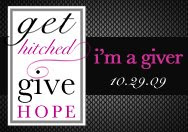
Summer, fall, winter or spring? 2 pros weigh in on the wedding ‘when’
Anna Sachse CTW Features
January 12, 2012
Summer
Pros: “The weather!” says Christina Friedrichsen, author of “Intimate Weddings: Planning a Small Wedding that Fits Your Budget and Style” (North Light Books, 2004). “If you’ve got your heart set on an outdoor wedding, there’s no better season.” There are also three great three-day holiday weekends, and guests are more willing to take vacation time in the warm months and/or when kids are out of school, says Wendi Hroncich, founder of Seattle-based Ethereal Events. Other advantages Hroncich points to include a seasonal produce and flowers, and more daylight hours, which is great for photos.
Cons: Summer is the most popular season for nuptials in the U.S., which means prices generally are the highest and there’s a lot more competition for vendors, says Hroncich. In addition, guests may have already made vacation plans - or have another wedding to attend - during your wedding weekend. And that sunshine you were hoping for? It may not seem so spectacular when you’re dripping in sweat.
Autumn
Pros: Fall is full of fabulous décor inspiration, from colorful leaves to pumpkins, gourds and corn stalks, says Friedrichsen. You also can have a sunset ceremony that’s reasonably early, adds Hroncich, and you may still be able to have an outdoor party. Even better? Travel is typically cheaper during this time, so you may find great honeymoon deals.
Cons: Hroncich warns that cold or wet weather can hit out of nowhere, so you’ll definitely need tents or an indoors backup plan. Autumn also is the second most popular time for weddings, so you’ll need to book your vendors well in advance.
Winter
Pros: Hotels and venues will likely do their own decorating for the holidays, supplying you with free décor that feels festive and warm, notes Hroncich. December can be costly, especially around Christmas and New Year’s Eve, but prices often drop drastically in November, January, and February. Use some of the money you save to serve an indulgent spread of seasonal treats like spiked eggnog and gingerbread cookies, says Hroncich.
Cons: It’s a busy and expensive time of year for people, so chances are not everyone on your list will be able to make it, says Friedrichsen. Furthermore, severe weather could make traveling treacherous or downright impossible, Hroncich says.
Spring
Pros: Spring usually is the off-season, thus more venues and vendors should be available, perhaps at a discount, says Friedrichsen. You’ll also find a greater selection of blooms, fresh-feeling menus, and bright color palettes, says Hroncich. Add to that the possibility of sunshine without sweltering heat.
Cons: With the exception of Spring Break, kids will be in school, making it more difficult for families to travel, says Hroncich. And, says Friedrichsen, there’s a lot of potential for a cool, rainy day that you didn’t properly plan for.








No comments:
Post a Comment